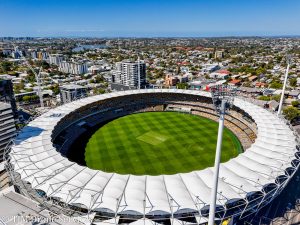
Welcome to our Drone Operator FAQ page! Here, we’ll address some of the most common questions related to drone operation, regulations, safety, and more. If you have a question that isn’t covered here, please feel free to reach out to us.
1. WHAT IS A DRONE OPERATOR?
A drone operator is an individual or organisation responsible for the operation of drones (Unmanned Aerial Vehicles or UAVs) for various purposes, including photography, videography, surveying, inspection, and more. Drone operators are skilled in piloting drones and ensuring their safe and legal use.
2. WHY HIRE A DRONE OPERATOR?
Drones can access areas that are usually more difficult or impossible for a person to reach. Attempting to access lofty heights and unique angles without a drone is dangerous and time consuming.
3. DO I NEED A LICENCE TO FLY A DRONE?
No. There are categories of drones for which you do not require a licence. You can fly drones for recreational purposes without a licence, but you must follow specific rules and guidelines set by the aviation authority.
To fly a drone over 2kgs commercially in Australia all drone pilots need to have accreditation or an REPL, a Remote Pilots Licence. To gain this licence, drone pilots must undertake study to learn the rules and regulations governed by CASA (Civil Aviation Safety Authority) and demonstrate that they are skilled, knowledgeable and competent in flying an RPA, (Remote Piloted Aircraft).
Hiring a licensed drone pilot gives peace of mind knowing that you are dealing with a professional.
WE FOLLOW CASA RULES EVERY STEP OF THE WAY, AND IF AN ASSIGNMENT IS OUTSIDE OF FLIGHT REGULATIONS OR RULES THEN IT WON’T GO AHEAD.
Safety is paramount in drone operation. Always follow these guidelines:
Keep your drone within visual line of sight.
Fly below 400 feet above ground level.
Avoid flying over people, vehicles, and wildlife.
Be aware of weather conditions and airspace restrictions.
Conduct pre-flight checks on your equipment.
4. WHAT TYPE OF WORK DOES A DRONE OPERATOR DO?
These are just a few examples and there are many more uses for a drone.
ASSET INSPECTIONS
Using a drone to inspect solar panels, roofing, cranes, multi-level buildings etc enable a thorough inspection which includes still images and/or video to keep as future reference for comparison purposes. This is very handy especially for insurance reasons. Above all else, it is time saving and safety orientated. Get the job done faster and without fear of danger.
WEBSITE, SOCIAL MEDIA PHOTOS/VIDEOS
A unique and spectacular photo and or video on a website or social media platforms like Instagram, Facebook or TIK Tok can be a game changer that captures the viewers attention faster and for longer.
SPORTING EVENTS, BUSINESS FUNCTIONS, PARTIES
Capturing unique angles and the “moment” is what drone video and photography is about. Ground level cameras don’t cut it when it comes to a drones capabilities capturing events etc.
THE OBVIOUS ONE….REAL ESTATE PHOTOS
Whether you’re selling or just want to get lasting footage of your house, leave it to a drone.
MARINE FOOTAGE..BOATING, SURFING, JET SKI’S ETC
We thoroughly enjoy doing this work as not many people who own watercraft are able to see their boat etc in action due to it being on water. imagine footage of your pride and joy out in the open water from all different angles. It truly is magnificent viewing.
CONSTRUCTION
Drones can capture all stages of development of construction from start to finish using the exact waypoints every time due to the features on our drones which makes for compelling viewing seeing the construction happen over a period of time.
There is a lot more work that a drone can do. A favourite saying of ours is ” a drones capabilities are only limited by your imagination”.
5. WHAT ARE NO-FLY ZONES AND HOW CAN I IDENTIFY THEM?
No-fly zones are areas where drone flight is restricted or prohibited, typically near airports, government buildings, and sensitive infrastructure. To identify these zones, you can use drone-specific apps and websites that provide up-to-date maps and information.
6. HOW DO I MAINTAIN AND CARE FOR MY DRONE?
Proper maintenance is crucial for drone longevity. Keep your drone clean, check for damaged parts, and ensure the firmware and software are up to date. Always follow the manufacturer’s maintenance guidelines.
7. ARE THERE ANY PRIVACY CONCERNS WITH DRONE OPERATION?
Yes, privacy is a significant concern. Respect people’s privacy and avoid capturing images or videos of individuals without their consent. Be mindful of local privacy laws and regulations.;